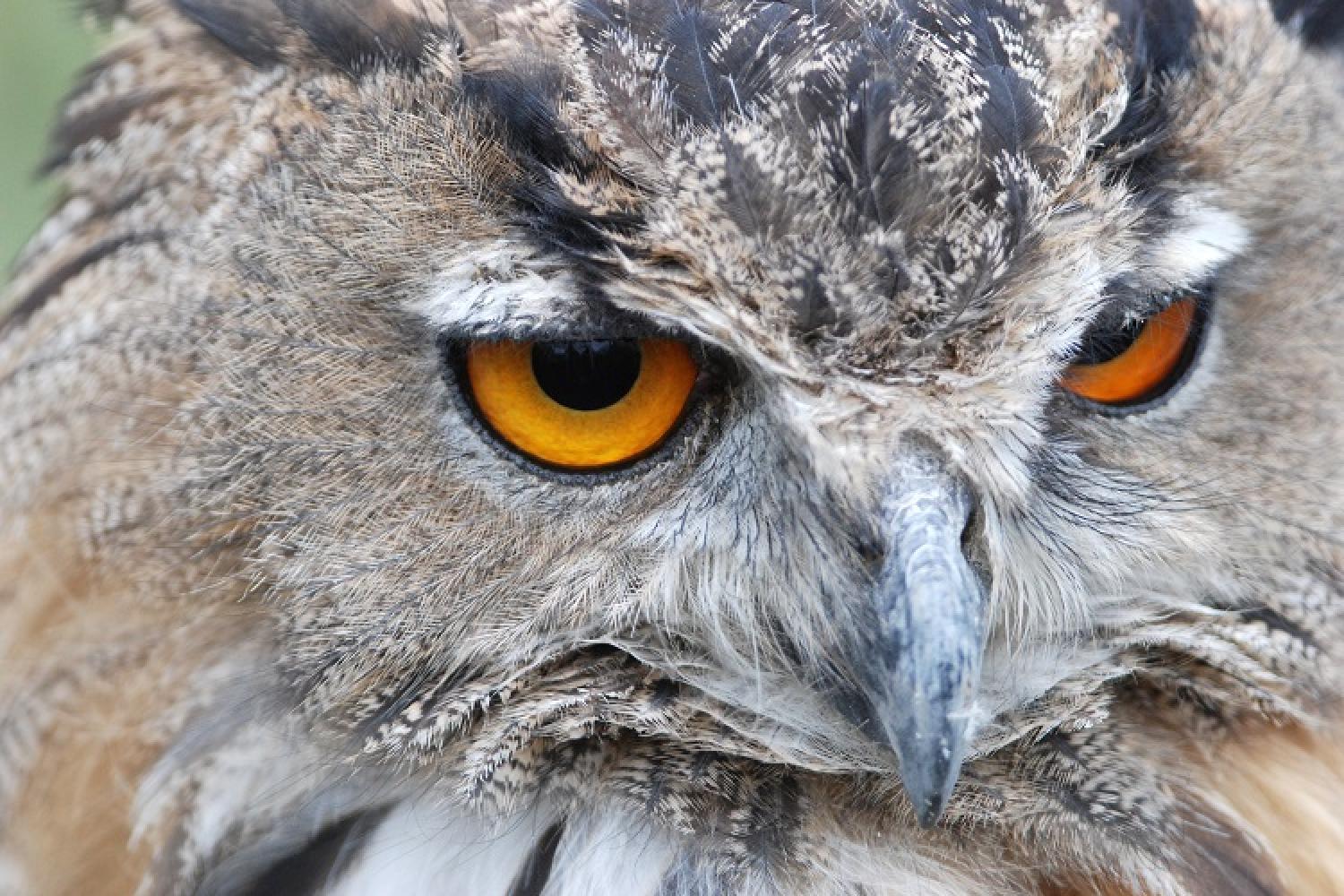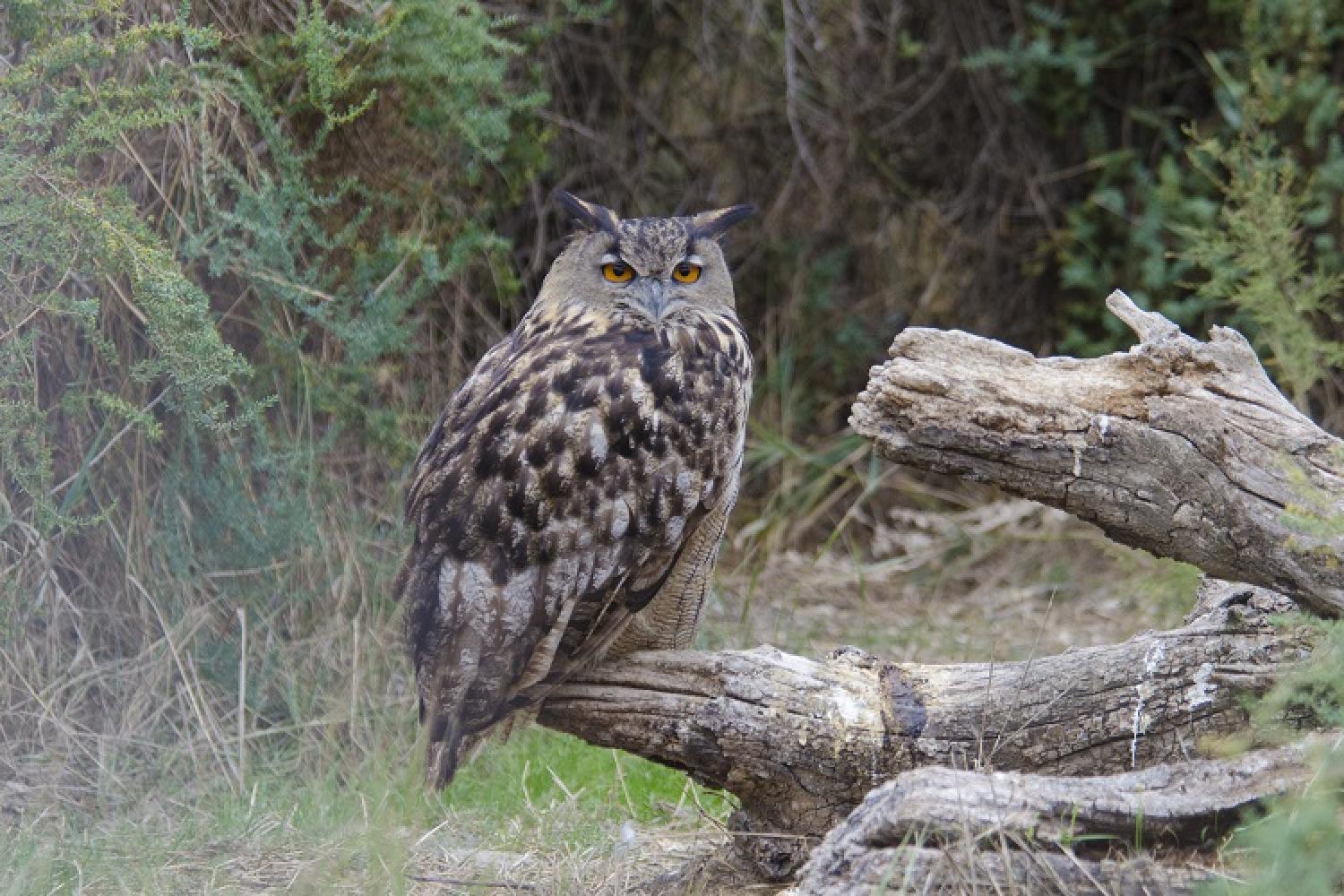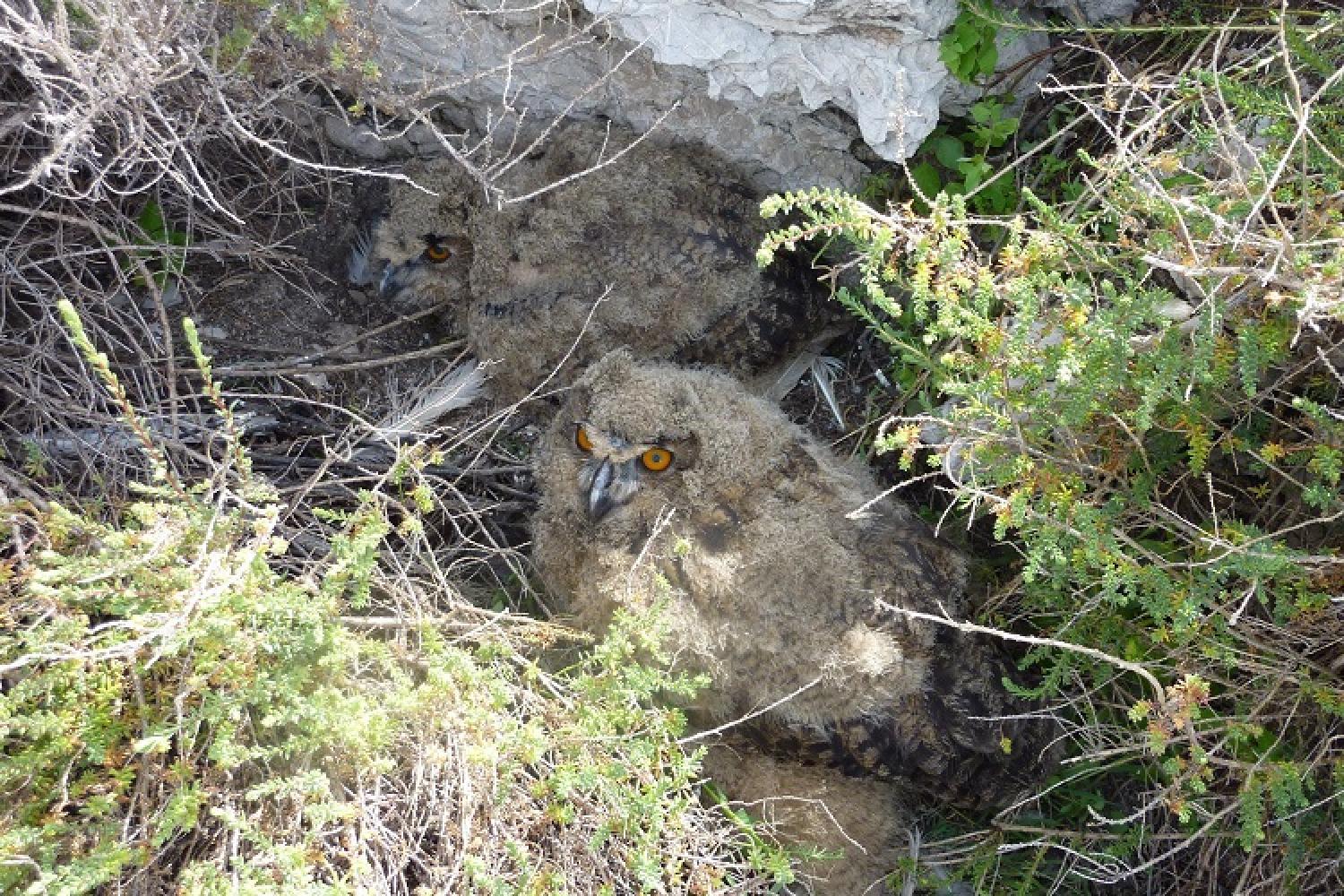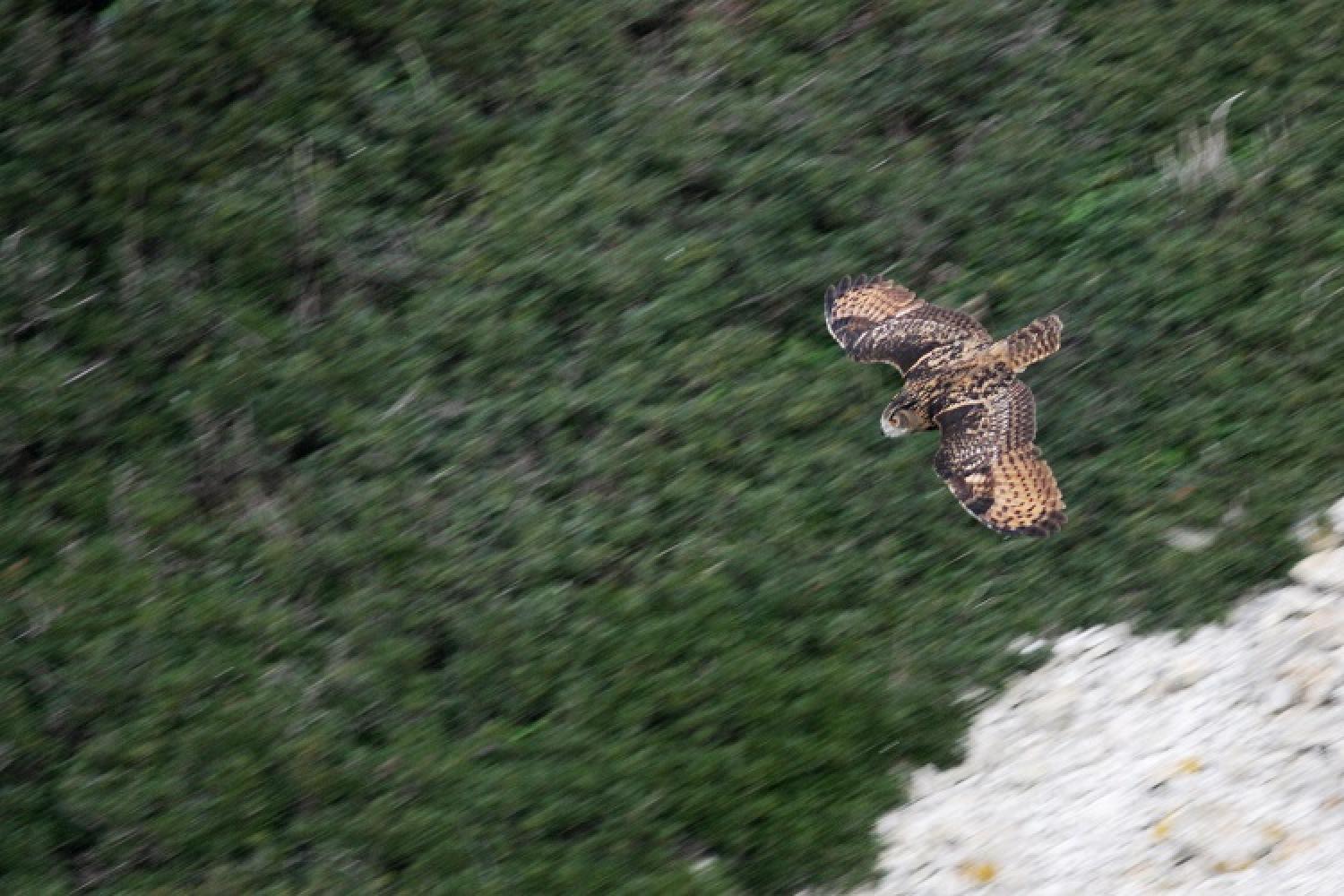The Eurasian eagle-owl is one of the largest nocturnal birds in the world. Its wingspan can reach 1m70.
Despite its impressive size, the Eurasian eagle-owl is a master of camouflage. Its plumage is a tawny-buff colour with brown speckles and it can melt into its environment. Its feathers, in the form of combs, absorb noise ensuring that it flies silently. In the National Park, it nests in cliffs where the female lays between 1 and 3 eggs per year. As an opportunistic predator, it feeds on mammals and birds.
It can live up to 20 years. Dispite its protection status since 1981, it is still victim of poaching and poisoning, and can suffer from collisions with vehicles or power lines.
Scientific name : Bubo bubo
Breeding season : January to August
 Did you know ?
Did you know ?
From the beginning of winter until spring, the male’s hooting can be heard: a long, strong and far-reaching hooooo sound or a short hoo-hoo sound. The female responds in the same way but is shriller. This call gives its Latin name, Bubo bubo. You can listen it hooting here.
 Conservation stake
Conservation stake
![]()
 Threats
Threats
- Human disturbance during its breeding season(climbing)
 Conservation management initiatives
Conservation management initiatives
- Temporary closure of certain climbing areas during its breeding season
 How can I help to protect it ?
How can I help to protect it ?
- Respect any closed climbing area




